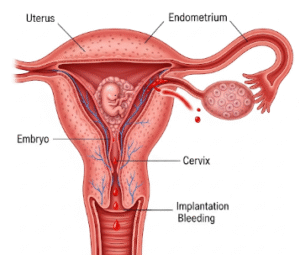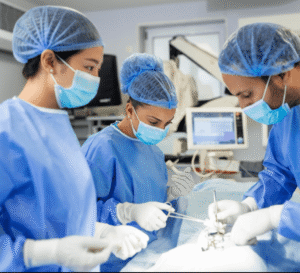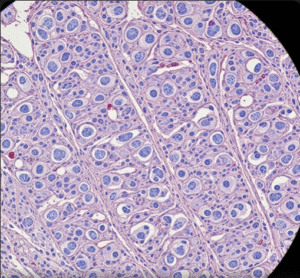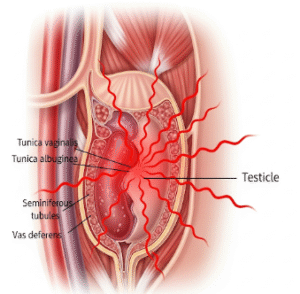Overview
Surgical and medical abortions are medical procedures to terminate a pregnancy safely and effectively. Abortions may be elective or medically indicated due to maternal health risks, fetal abnormalities, or personal circumstances.
In Korea, both medical (medication-based) and surgical abortion procedures are available in licensed hospitals and clinics, under strict medical supervision. These procedures are highly regulated, safe, and effective, with modern techniques minimizing risks and recovery time.
What is Surgical and Medical Abortions?
There are two primary types of abortion procedures:
- ✦ Medical abortion: uses medications, typically mifepristone followed by misoprostol, to terminate early pregnancy (usually up to 10 weeks).
- ➤ Surgical abortion: involves a procedure to remove the pregnancy tissue from the uterus, most commonly through vacuum aspiration or dilation and curettage (D&C).
- ✦ Indications: elective termination, maternal health risk, fetal anomaly, miscarriage management.
- ➤ Effectiveness: medical abortion is effective in early pregnancy, while surgical abortion is effective throughout the first and second trimesters, depending on gestational age.
The goal is to terminate pregnancy safely, relieve symptoms, prevent complications, and preserve future fertility.
What are the Benefits?
Surgical and medical abortions provide several advantages:
✅ Safe and effective termination of pregnancy.
➤ Minimally invasive medical abortion avoids surgical intervention in early pregnancy.
✦ Surgical abortion offers rapid completion, especially in later first-trimester pregnancies.
➤ Preserves fertility for future pregnancies.
✅ Reduces physical and emotional complications compared to untreated or unsafe abortion.
✦ Available in specialized Korean facilities ensuring privacy, hygiene, and expert care.
Procedure Details
1) How should I prepare for Surgical or Medical Abortion?
Preparation steps include:
- ✦ Medical evaluation: review medical history, medications, allergies, and gestational age confirmation.
- ➤ Ultrasound examination: to confirm intrauterine pregnancy, gestational age, and rule out ectopic pregnancy.
- ✦ Laboratory tests: blood count, Rh factor testing, and infection screening if needed.
- ➤ Medication review: inform the doctor of anticoagulants, chronic medications, or allergies.
- ✦ Consent and counseling: discuss procedure type, anesthesia (for surgical abortion), risks, benefits, and follow-up.
- ➤ Psychological support: counseling or support services may be provided.
2) What happens during the procedure Surgical or Medical Abortion?
Medical abortion:
➤ Step 1: Administration of mifepristone orally at the clinic.
✦ Step 2: Misoprostol is taken orally or vaginally 24–48 hours later to induce uterine contractions.
➤ Step 3: Cramping and bleeding occur as the pregnancy is expelled.
✦ Step 4: Patient monitored for heavy bleeding, pain, or complications.
Surgical abortion:
➤ Step 1: Performed under local anesthesia, sedation, or general anesthesia.
✦ Step 2: Cervix is dilated gently.
➤ Step 3: Vacuum aspiration or D&C is performed to remove pregnancy tissue.
✦ Step 4: Uterus is inspected for complete removal and bleeding controlled.
➤ Step 5: Sterile dressing applied, and patient monitored in recovery.
Both methods in Korea prioritize safety, privacy, and rapid recovery, with minimal complications.
3) What happens after Surgical or Medical Abortion?
Postoperative or post-medication care includes:
- ✦ Monitoring: watch for heavy bleeding, fever, or severe pain.
- ➤ Pain management: over-the-counter or prescribed analgesics for cramps or discomfort.
- ✦ Follow-up: ultrasound or clinical evaluation within 1–2 weeks to confirm completion.
- ➤ Activity guidance: avoid strenuous activity, sexual intercourse, or insertion of objects into the vagina for 1–2 weeks.
- ✦ Contraception counseling: discussion of future family planning and contraceptive options.
- ➤ Emotional support: counseling or support groups as needed.
Most patients recover physically within a few days, though emotional recovery varies individually.
Risks / Benefits
Potential Risks:
- ✦ Infection of the uterus or reproductive tract.
- ➤ Heavy or prolonged bleeding.
- ✦ Incomplete abortion requiring surgical intervention (for medical abortion).
- ➤ Rare complications: uterine perforation (surgical), severe pain, or allergic reaction to medications.
Benefits:
- ✅ Safe termination under medical supervision.
- ✅ Effective removal of pregnancy tissue.
- ✅ Minimally invasive medical abortion for early pregnancy.
- ✅ Surgical abortion available for later stages or if medical abortion fails.
- ✅ Maintains future fertility and reduces long-term complications.
Recovery and Outlook
Recovery after abortion generally includes:
- ➤ Physical recovery: cramping and bleeding usually resolve within 1–2 weeks.
- ✦ Monitoring: follow-up ensures completion and identifies complications early.
- ➤ Emotional well-being: counseling and support may be offered.
- ✦ Resumption of daily activities: light activities immediately; avoid strenuous activities for 1–2 weeks.
- ➤ Long-term outlook: most patients recover fully with no impact on future fertility when procedures are performed in experienced Korean centers.
When To Call the Doctor
Contact your healthcare provider if you notice:
⚠ Heavy or prolonged bleeding.
⚠ Fever, chills, or foul vaginal discharge.
⚠ Severe abdominal or pelvic pain.
⚠ Suspected incomplete abortion (persistent pregnancy symptoms).
⚠ Emotional distress needing professional support.
Best Korea Option / Process
Korea provides world-class abortion care with:
- ✦ Expert gynecologists trained in both medical and surgical abortion techniques.
- ➤ Advanced facilities ensuring privacy, safety, and hygienic care.
- ✦ Minimally invasive procedures for early medical abortion.
- ➤ Surgical options available for later first-trimester or failed medical abortions.
- ✦ Comprehensive pre- and post-abortion counseling, including contraception and emotional support.
- ➤ Safe, legal, and confidential care for both domestic and international patients.
Korea ensures patients receive safe, effective, and supportive abortion services with minimal complications and optimal recovery.
Highlights of Surgical and Medical Abortions in Korea
- ✅ Safe, supervised procedures with high success rates.
- ➤ Minimally invasive options for early pregnancy.
- ✦ Surgical techniques for later stages or medical abortion failure.
- ➤ Rapid physical recovery and emotional support available.
- ✅ Comprehensive pre- and post-procedure care with contraceptive counseling.













